Choosing a land for ficus
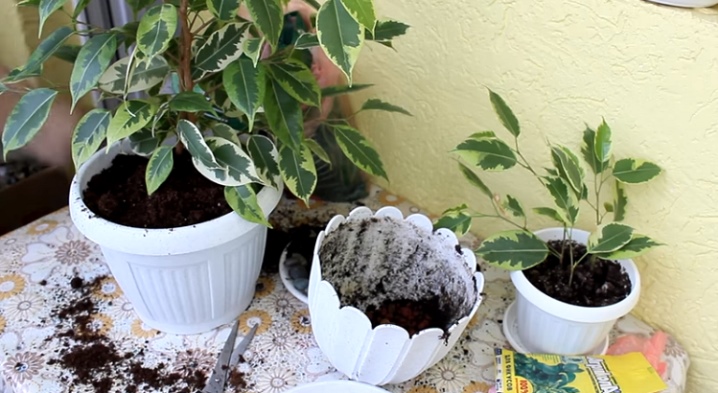
Most indoor plants are very demanding on the composition and properties of the soil, the quality of which affects not only their appearance, but also health, and even life expectancy. Ficuses, so beloved by flower growers, are, in this respect, rather whimsical plants that make increased demands on the quality of the substrate. So that the ficus feels good and can please for a long time with the healthy gloss of its emerald foliage, the choice of soil for it must be approached with special attention.
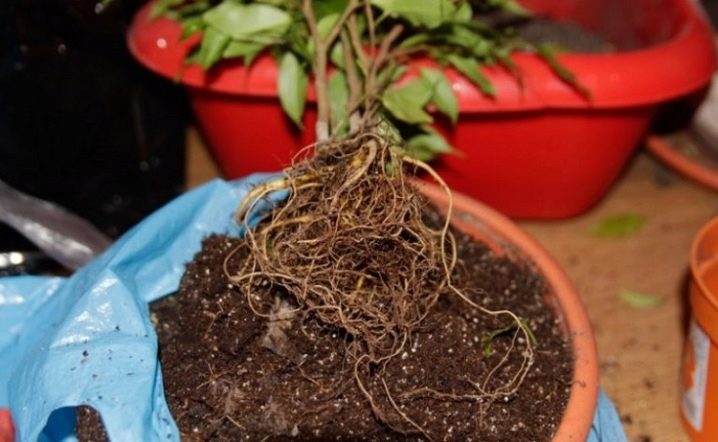
Primary requirements
For full development and growth, the plant requires high-quality fertile soil. Ideally, the land for ficus should have the following properties:
- breathability;
- moisture permeability;
- suitable acidity;
- optimal structure.
Household ficuses prefer moisture and air permeable soil, rich in useful micro and macro elements. At the same time, the concentration of nutrients in the soil should be optimal.
Excess nitrogen, phosphorus and potassium can weaken the plant's immunity, cause deformation of its leaves and shoots.
Indoor ficuses painfully tolerate waterlogging of the soil. If water stagnates in the pot, the roots will start to rot, which will lead to the death of the plant. The soil for the ficuses must be well drained. - this will provide full circulation of moisture and air at the roots.
Ficuses need a neutral or slightly acidic soil with acidity parameters of 6.5-7 pH. Acidic soils are not suitable for these plants.
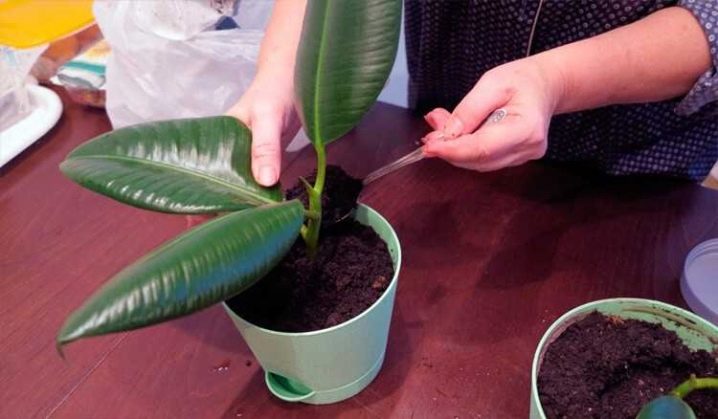
When choosing a soil for the described plants, you should pay attention to the structure of the mixture. Loose, not too dense soil containing organic nutrients is ideal. It is good if the composition contains sand, which will provide the substrate with airiness, air and moisture permeability.
It is important to note that in dense clay soils, domestic ficuses feel bad, noticeably lagging behind in development and growth. High clay content impairs soil drainage, which inevitably leads to waterlogging and stagnation of water at the roots. This, in turn, leads to decay of the root system and the appearance of pests in the substrate.
Experienced growers recommend paying attention to its age when transplanting a plant. It is one of the criteria in choosing a suitable soil. So, it is advisable to plant young ficuses in loose and light soil. Older plants are best suited for soil with a denser structure.
Improve the moisture and air permeability of the soil allows drainage, which is laid on the bottom of the pot before planting the plant. River pebbles, crushed expanded clay, pieces of foam plastic, fine clean gravel are used as drainage.
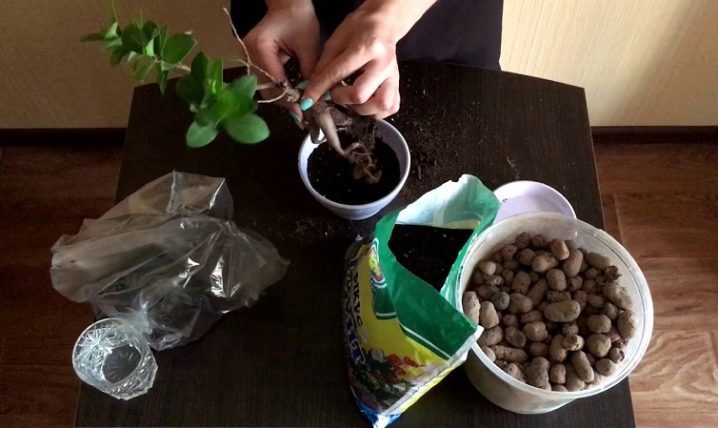
DIY soil for ficus
In modern gardening stores, you can find a wide range of ready-made soil mixtures for ficuses. Their main components are usually the following components:
- peat;
- deciduous humus;
- turf;
- sand.
Some manufacturers enrich their soil mixtures with various nutrients - organic matter and mineral complexes. Such additives significantly extend the life of the substrate.
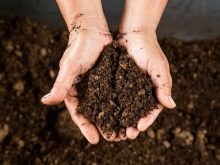
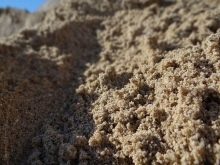
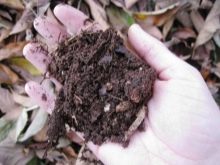
To make a soil mixture for a young ficus on your own at home, you need to mix turf, peat, sand and deciduous humus in equal proportions.To improve soil drainage, coarse sand is preferable. It is also allowed to add a small amount of crushed charcoal to the mixture. It will not only add airiness and lightness to the soil mixture, but also create a protective environment that prevents the emergence and development of pathogenic bacteria.
When preparing a soil mixture for adult plants, experienced flower growers recommend using two parts of fertile land, two parts of deciduous humus and one part of sand. This composition has a moderate density, suitable for adult ficuses with a strong and developed root system. If the soil mixture eventually turns out to be too dense, it is allowed to add drainage elements into it - small stones, expanded clay, pebbles.
In the absence of the main components for preparing a soil substrate for ficuses, ordinary universal soil is also suitable, to which sand is necessarily added. This makes the soil mixture more airy and light.
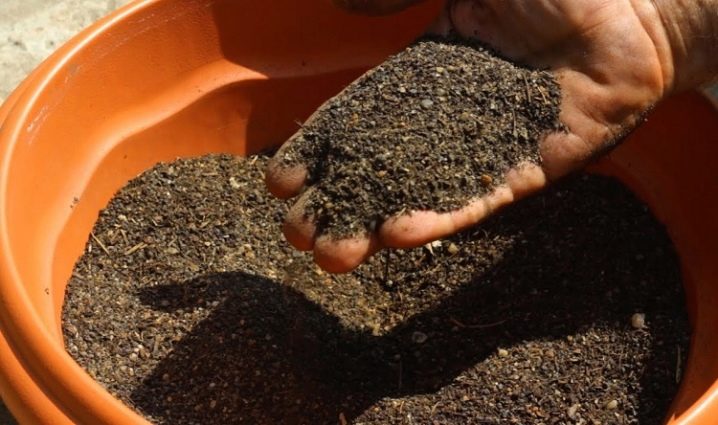
Popular brands of ready-made mixtures
Among modern manufacturers offering consumers ready-made soil mixtures for ficuses, florists mark the following brands:
- "Garden of Miracles" Is a brand offering quality balanced ficus soil. Its main components are peat, vermicompost and sand. To enhance the nutritional properties of the mixture, the manufacturer enriches it with complex mineral supplements.
- "Vermion" - under this brand, a nutritious soil mixture with an optimal acidity level is offered. The main components of the mixture are peat, ash, dolomite flour, vermicompost and fine fractions of expanded clay.
- "Flower happiness" - a trade mark under which a ready-made soil mixture for ficuses is produced, enriched with trace elements and minerals. Its basic components are high-moor and lowland peat, dolomite flour, and sand. Auxiliary components of the mixture are mineral additives and expanded clay fractions, which ensure good drainage of the substrate.
- "Veltorf" Is a well-known brand that offers consumers a special peat mixture for growing ficuses and palms. Nutritious soil of this brand consists of a mixture of peat of varying degrees of decomposition, river sand and limestone flour. To enrich the nutritional properties of the mixture, the manufacturer includes superphosphate, ammonium nitrate and a complex mineral supplement.
- "Seramis" Is a very popular trade mark among flower growers, producing a wide range of soil mixtures and soil improvers. The ficus soils offered under this brand are balanced and enriched with nutrients as much as possible. An important component of these soil mixtures is a unique clay granulate, which provides full access of air and moisture to the roots.
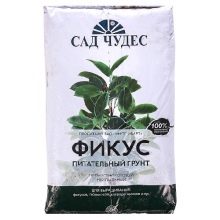
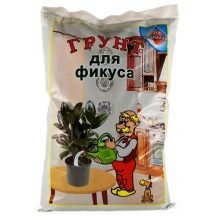
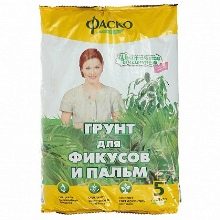
Helpful hints
When choosing or independently preparing soil for ficuses, it should be borne in mind that the high content of peat in the composition reduces the period of use of the substrate. Peat mixtures are depleted rather quickly, requiring replacement. This, in turn, leads to more frequent plant transplants.
Excessive humus content in the composition often causes the formation of lumps in the substrate. Over time, this soil mixture begins to collapse and compaction, as a result of which the water stagnates in the pot, increasing the risk of root rot formation.
When buying soil for ficus, you must carefully study the composition. The most important trace elements necessary for the full development of a plant are potassium, phosphorus and nitrogen. Experienced growers emphasize that nitrogen should be in third place or further in the composition information. Its finding in the first place indicates a high nitrogen content in the substrate, which is unacceptable for ficuses.
In order to avoid infection of plants with pests, it is advisable to disinfect the soil before transplanting.This applies to both purchased soil mixtures and self-prepared substrates.
After processing, the beneficial microflora can be restored with the help of special dietary supplements and soil improvers.
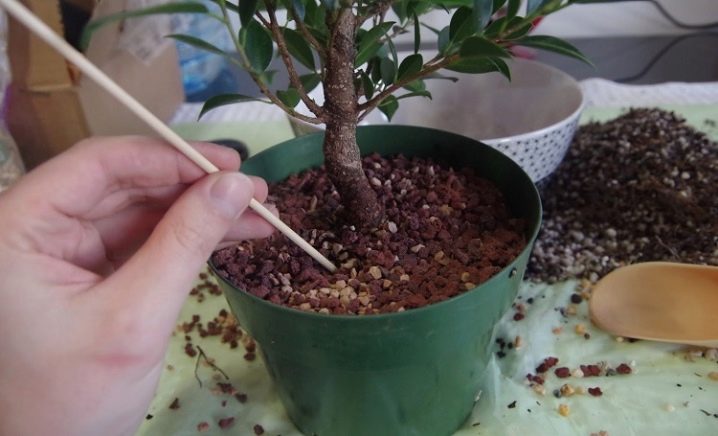
Soil replacement frequency
One of the important aspects in growing ficuses concerns the frequency of replacing the substrate in the pot. Over time, the soil mixture is depleted, and the root ball of the plant increases in size. This involves transplanting the ficus into a more spacious container and replacing the old soil with a new one.
Experienced growers recommend completely renewing the soil once every 3-4 years. If the plant is too tall and spreading, you can limit yourself to replacing the topsoil. To do this, part of the old substrate lying on the surface is carefully removed to a depth of several centimeters, after which fresh nutrient soil is poured into the pot.
The plant is transplanted with the utmost care, removing the ficus along with the earthen clod. It is not necessary to clean the roots from the old soil mixture. In the future, it will allow the root system and the plant itself to quickly adapt to the new nutrient medium.
If it becomes necessary to replace the pot, you need to make sure that the diameter of the new container is 3-4 centimeters larger than the old one.
Before the planting procedure, a new pot is disinfected with a solution of potassium permanganate or an alcohol-containing agent.
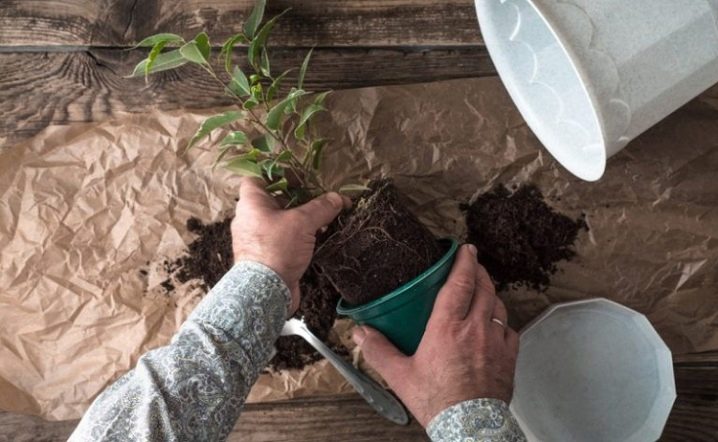
You can learn more about how to easily and quickly propagate the Benjamin ficus.





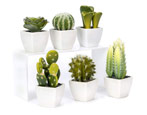
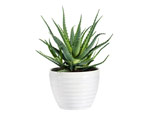


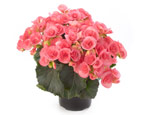
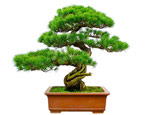

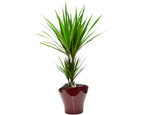
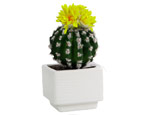
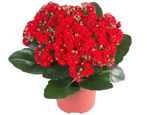
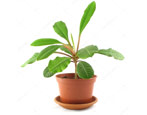

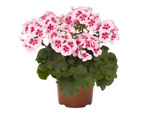


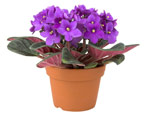










The comment was sent successfully.